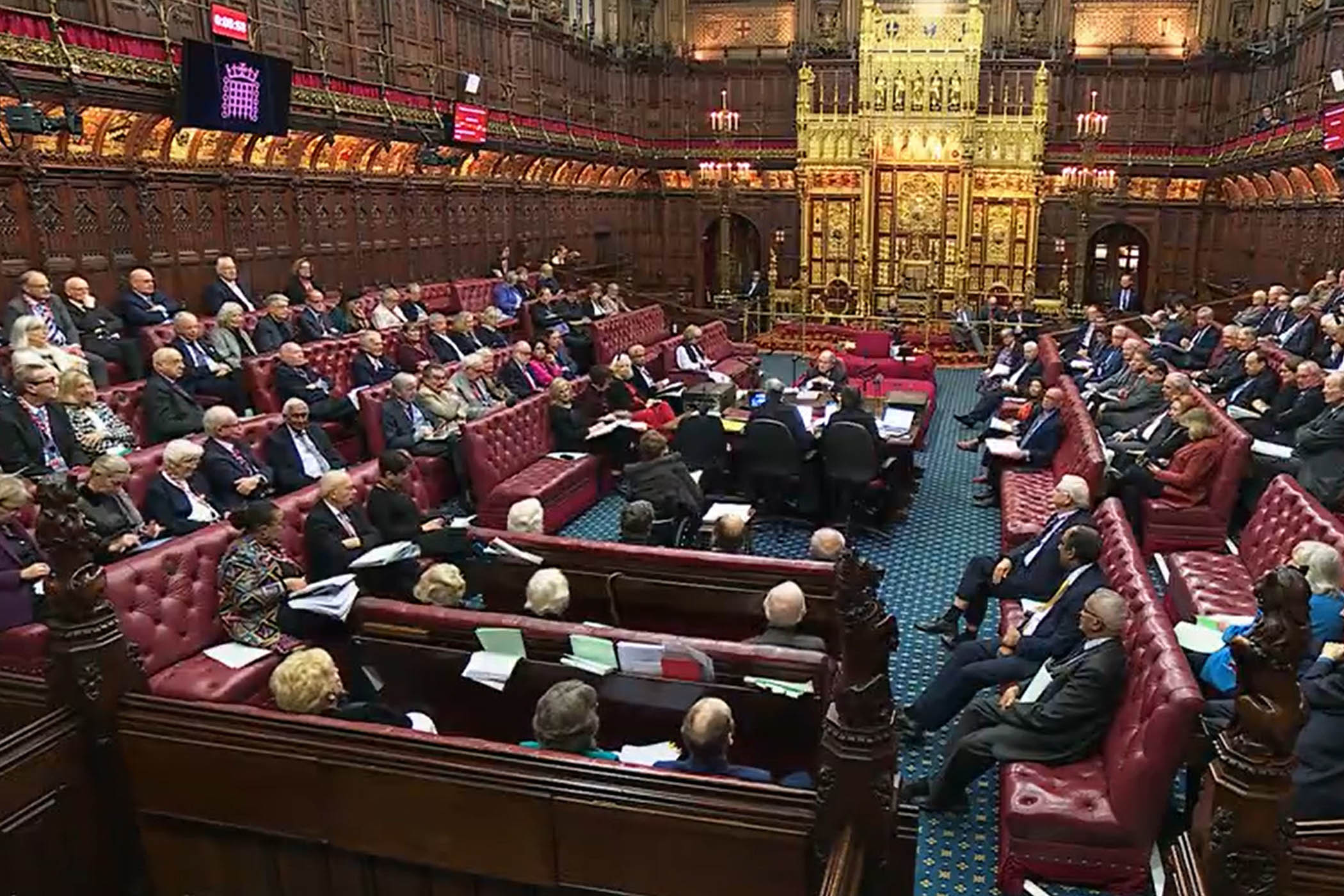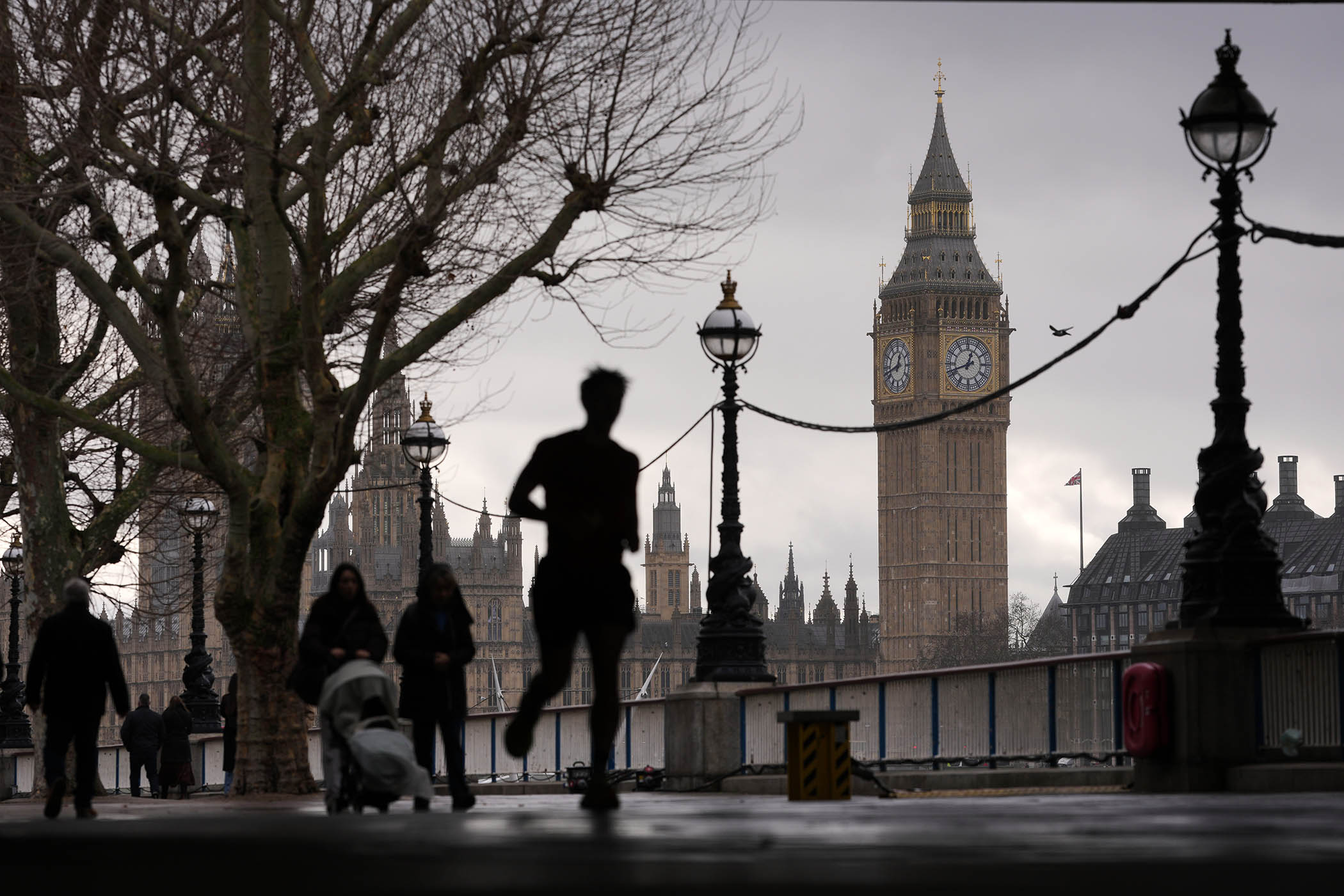In so much as the typical voter spends any time thinking about the House of Lords, they probably imagine it as a well-mannered and well-upholstered gated community for elderly politicians who are kept entertained by doing a bit of light legislating from their claret-coloured benches. Yet the Lords can also be the arena for rough partisan politics every bit as fierce as the struggles that erupt down the corridor in the Commons. While the language may be a little more genteel in the upper house, the mood can still turn snarly. And so, to the grief of Labour ministers, it is proving at the moment.
When Sir Keir Starmer first brought his party back to power, opposition peers were initially cautious about resisting a government elected with a landslide parliamentary majority. Labour’s vote share was far from resounding, but the government still enjoys much more democratic legitimacy than the entirely unelected peerage.
The passage of time has turned the peers, especially those of the Tory variety, bolshie. As the government has become increasingly unpopular, the Lords have waxed more aggressive about attacking Labour’s programme. They are much more powerful from a constitutional point of view than is generally appreciated because they can eat up huge amounts of parliamentary time and ministerial energy. Almost entirely unreported in the media, anti-government peers have been dragging out proceedings and bogging down legislation for months. In the past few days, they have sought to dismember key elements of the employment legislation, one of the government’s flagship laws. For the third time in a row, the Lords supported a slew of Conservative-backed amendments to weaken workers’ rights. The opponents included dozens of hereditary peers, among them the 9th Duke of Wellington, descendant of the more famous one who battled Napoleon at Waterloo. Peers have also sunk their canines into other important legislation, including the new laws designed to speed up planning decisions.
Labour does not have a majority in the upper house nor anything close to one. The Conservatives, despite their lowest tally of MPs in history, remain the largest group in the Lords with 283 members. The crossbench and non-affiliated peers total 218. Labour has just 211. “We’re the third party there,” complains one minister. Labour might have a massive majority in the Commons, but in the bloated Lords it has just a quarter of the members eligible to attend proceedings. Some of the government contingent are feeling the grinding pressure of attritional warfare in the upper house. “I thought it was a care home,” groans one Labour peer. “It turns out to be a sweatshop.”
The bellicosity of Tory peers is sharpened by their aggravation about the attempt to remove the 92 seats reserved for hereditary lords. To try to keep things simple, the government disappointed hopes of more thorough reform by sidelining plans for a fully modernised second chamber fit for the 21st century. The bill to eject the last of the hereditaries is short and tightly drafted. To the vast majority of people, this is long, long overdue. It makes no more sense to select legislators on the basis of their parentage than it does to have hereditary airline pilots. You’d hesitate to submit yourself to an operation by a brain surgeon whose only qualification was that his great-grandfather did the job. The African Kingdom of Lesotho is the only other country in the world with a national legislature containing a hereditary element. The Tory hereditaries, in concert with other Conservative peers, are resisting being ushered into the tumbril. Lord True, the leader of the Conservatives in the upper house and a man with a taste for ridiculous hyperbole, decries it as “a purge on a Cromwellian scale” and has nakedly threatened “very aggressive procedural action” against the government if it doesn’t allow a “goodly number of hereditary peers to stay”. There were five days of the Lords as a whole sitting as a committee and 46 pages of amendments to a two-page bill. Peers have sent it back to the Commons amended to the effect that hereditary peers can remain as members of the Lords until they shuffle off this mortal coil or voluntarily choose to leave. This will mean that some of them could still be clinging on as lawmakers for many years to come. More than 14 months since the introduction of the legislation, it is still not yet on the statute book.
Law and precedent are supposed to curb the unelected house’s capacity to make mischief. The Salisbury Convention holds that peers should not thwart a government when it is fulfilling a manifesto commitment, as Labour is with both the employment rights bill and the removal of the hereditaries.
One weapon deployed by peers is the power to talk. And boy can they talk when they want to throw sand into the government’s gears. They can turn committee stages into marathon epics because all peers can participate and there’s no “guillotine” to put a time limit on debate. Members of the Lords have put forward more than 1,000 proposed changes to the law to facilitate assisted dying. Hundreds of these amendments are apparently the work of just seven opponents of the legislation. By the close of proceedings on Friday, the Lords had got through fewer than 30 of the amendments at the end of two of the four days reserved for the committee stage. Assisted dying is a complex and contentious issue that merits detailed scrutiny. It is a different matter if procedural sabotage is the intent. The Lib Dem peer Lord Goddard warned his fellow peers that they had “a duty” to treat the bill “with respect, not disdain, not threatening to derail it or run it out of time”. The elected chamber has approved assisted dying and it has the support of most voters. It will be disgraceful if it fails to become law because it is “talked out” by a clique of unelected peers.
The Lords’ role obviously involves the review of legislation, and sometimes the body does a decent job of making ministers rethink flawed laws. But there’s a distinction between being a well-intentioned check and balance to the Commons and conducting campaigns to subvert the ambitions of the government and the will of the elected chamber.
More than one minister I’ve spoken to is bewildered that Number 10 seems reluctant to call out the delaying antics and wrecking tactics of vandals in ermine. I am similarly baffled that the government isn’t making more noise about it.
Photograph by House of Lords/UK Parliament/PA Wire
Newsletters
Choose the newsletters you want to receive
View more
For information about how The Observer protects your data, read our Privacy Policy



